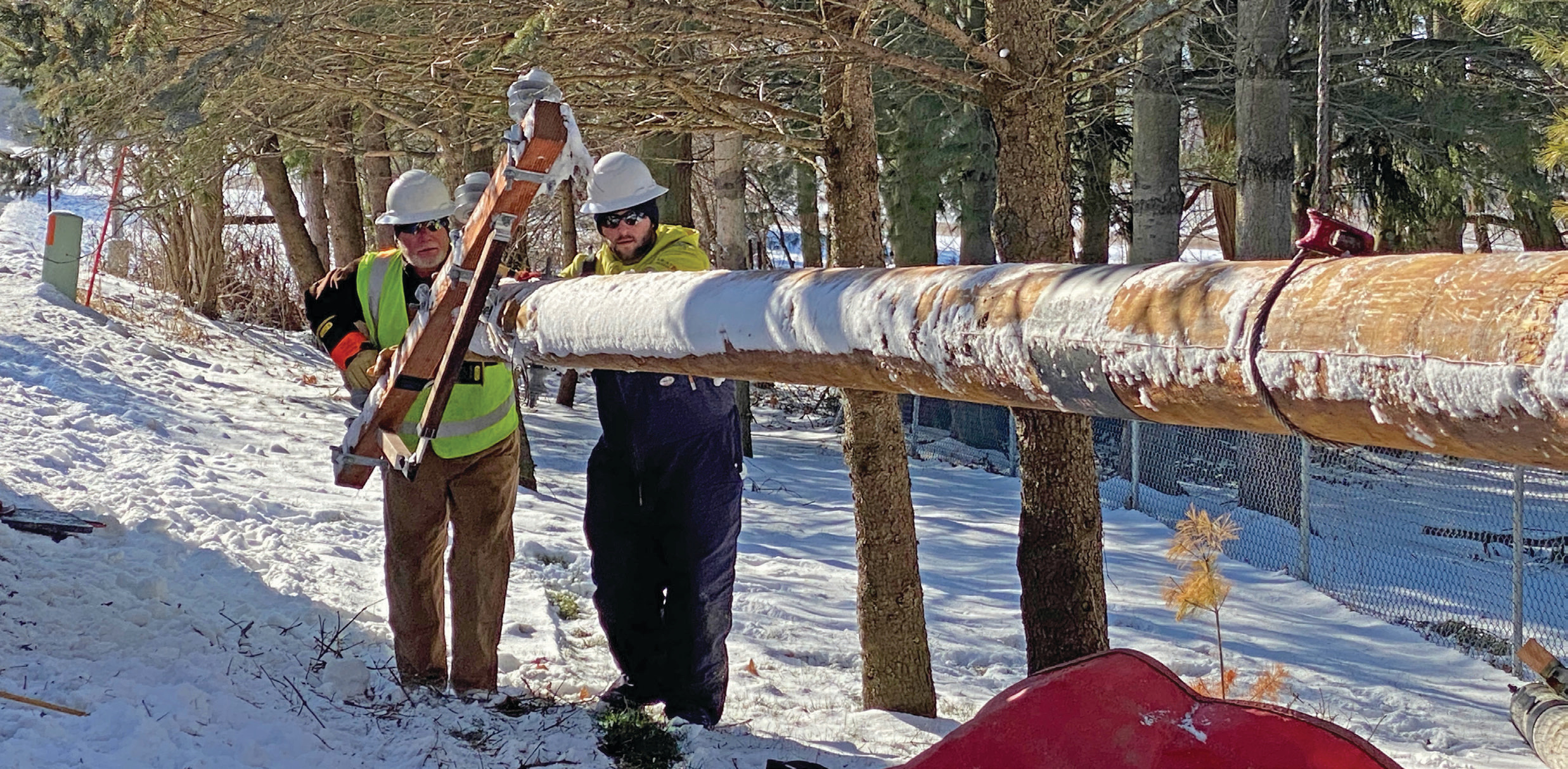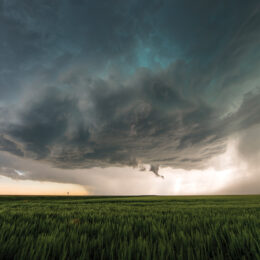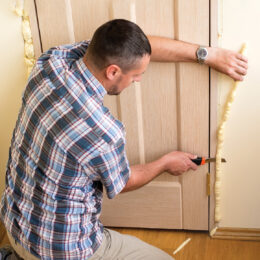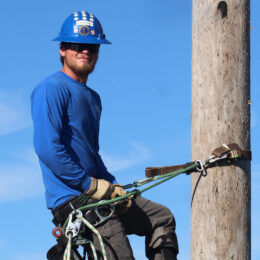
If an approaching winter storm is the lead story on your nightly news, it’s probably chaos at the local grocery and too late to properly stock up on necessary food items, de-icing pellets and other related items. That’s why you should prepare before a winter storm is on the horizon.
It’s important to develop a plan for power outages during these harsh months. Heavy snows, freezing rain and ice storms can all create electrical hazards.
“Being safe around electricity is something you should focus on year-round,” said Jon Elkins, vice president of safety, training and compliance at Indiana Electric Cooperatives. “Indiana winters can bring a whole slew of dangerous hazards, especially where power lines are concerned.
“Snow and ice often accumulate on power lines. The added weight may cause lines to snap off the poles or cause the poles to break,” Elkins explained. “That can bring power lines into contact with the ground, trees, homes, vehicles and other objects. If people or pets come in contact with a live power line, they can suffer serious injury or even death.”
Due to these dangerous conditions, many residents may be confined to their homes for days at a time. That’s why it is important to have a plan in place, especially during winter storm outages. To better prepare you and your family for a power outage, your electric co-op recommends consumers keep a storm preparedness kit fully stocked.
THE BASIC SUPPLIES IN THIS KIT SHOULD INCLUDE:
- Bottled water
- Non-perishable food
- Emergency blankets
- First aid kit/medicine
- Flashlight
- Battery-operated or hand-crank radio
- Extra batteries
- Toiletries
Now that your family is prepared for an outage, what should you do if the lights do go out?
Keep warm air in and cool air out by not opening doors to unused rooms. Do not open doors to the outdoors unless necessary.
Food safety is also important when there is an outage. Keep refrigerator and freezer doors closed as much as possible, and eat perishable food first. If you know a winter storm is coming, stock up on ice so you can keep things in coolers to keep them from going bad if an outage lasts longer than a day. Once the refrigerator reaches temperatures higher than 40 degrees Fahrenheit, foods can become unsafe to eat.
To protect homes’ electrical equipment during an outage, turn off and unplug all unnecessary electronics or appliances. This will keep equipment from being damaged by surges or spikes when the power returns.
Once an outage is over, there are still safety precautions to take. Power lines could still be down. If you see downed power lines, do not touch them. Call your local co-op or 911 for assistance.
Sources: Electrical Safety Authority, Popular Mechanics



